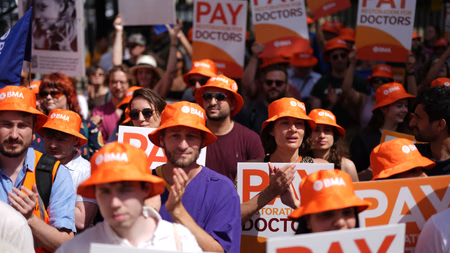Patient Safety at Risk Amid NHS Strike Plans, BMA Cautions
The British Medical Association (BMA) has issued a stark warning that planned strikes by junior doctors across England could “seriously risk patient safety” if unresolved disputes over pay and working conditions escalate further. The alert comes as the BMA’s Junior Doctors Committee announced a potential new wave of industrial action starting in September 2025, following the government’s failure to meet demands for a 35% pay restoration to address real-terms cuts since 2008.
BMA chair Dr. Philip Banfield, speaking at a press conference in London on Monday, highlighted the strain on an already overstretched NHS, noting that 1.5 million appointments and procedures have been cancelled since strikes began in 2022. “The NHS is on its knees, and further strikes could push it to breaking point,” Banfield said. “We don’t want to strike, but junior doctors are exhausted, underpaid, and leaving for better opportunities abroad. Without a fair deal, patient safety will suffer even more.”
The warning follows a record 11.3 million NHS waiting lists in June 2025, with emergency departments reporting delays of up to 12 hours. Health Secretary Wes Streeting, who has offered a 22% pay rise over two years, urged the BMA to reconsider, stating, “We’ve gone as far as we can without risking economic stability.” However, junior doctors, earning as little as £15.53 per hour, argue the offer falls short, with 98% voting to continue strike action in a recent ballot.
The BMA pointed to critical staff shortages, with 10,000 doctors leaving the NHS last year, and warned that winter pressures could exacerbate risks if strikes disrupt services. Social media reactions on X, tagged with #NHSStrikes, show public support split, with @NHSWorkerUK praising doctors’ demands but @TaxPayerVoice warning of “chaos for patients.” The Royal College of Nursing and Unison have hinted at joining coordinated action, raising fears of a broader healthcare crisis.
